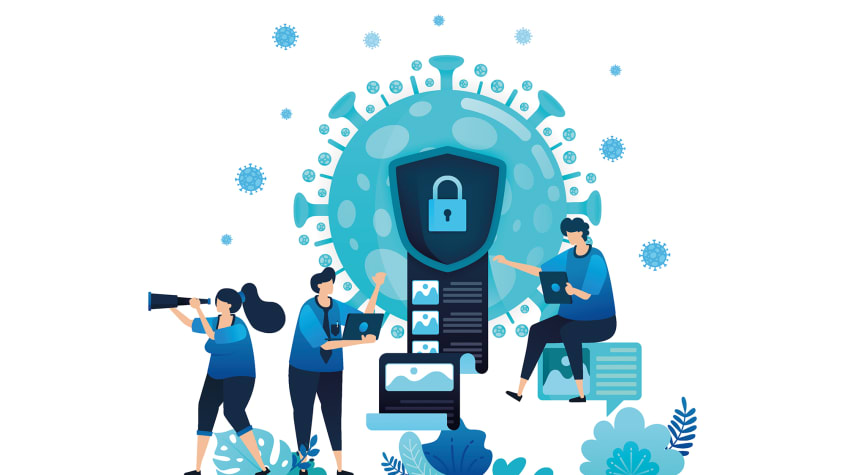What Can Businesses Learn from the Cyber Security Challenges of Coronavirus

As we come out of lockdown and start to negotiate the economic fallout it has caused, that should be borne in mind – skimping on cyber could have dire consequences
Mark Ward, Senior Research Analyst at the ISF
The coronavirus pandemic has seen a dramatic increase in cyber crime. Research from cybersecurity firm Checkpoint shows there were an estimated 200,000 coronavirus-themed attacks taking place weekly by the end of April, up from 5,000 every week in February.
Businesses, in particular, have felt first hand the effects of growing cyber crime during the coronavirus pandemic. With the vast majority of firms adopting remote working to protect their staff and abide by lockdown restrictions, their attack surface has widened and they have become lucrative targets for cyber criminals. The experience has, however, offered some important lessons for the future even after the COVID-19 pandemic ebbs away.
Cybersecurity is paramount
Throughout the coronavirus pandemic, cybersecurity teams have played a vital role within organisations – and their importance is a lesson in itself. Mark Ward, senior research analyst at Information Security Forum, says: “The obvious lesson is that all the talk about how quickly organisations can change are pretty much wrong. The swift response to the pandemic by security teams showed that, as a discipline, it can move faster. That’s a useful moment as, in the past, infosec has been seen as a braking force on an organisation. Thanks to involvement in agile and other methodologies, infosec was shrugging off that reputation and by now it’s a label that just doesn’t stick.”
“Another aspect of this lesson is it underlines the importance of info sec to organisations – they really need it to survive and its worth has been amply demonstrated. As we come out of lockdown and start to negotiate the economic fallout it has caused, that should be borne in mind – skimping on cyber could have dire consequences,” he adds.
The final lesson, he says, is looking after cyber staff. Ward says: “They have been under enormous pressure over the last few months and that will not let up for a while. CISOs, working with colleagues in HR, should make sure that people feel supported, are getting help if they need it and are being listened to – they have been the creators of the change and will have great insights into how an organisation has changed.”
Businesses of all shapes and sizes have been the targets of cyber criminals’ desire to take advantage of the coronavirus pandemic. Consequently, organisations have had to deal with a range of online threats, and that has presented huge lessons to be learnt from a cyber security perspective.
